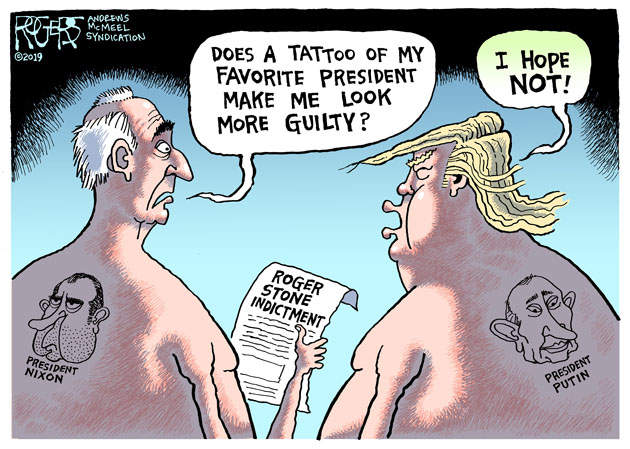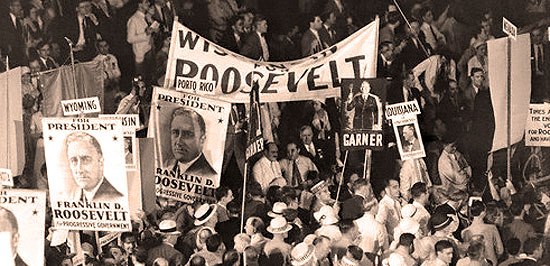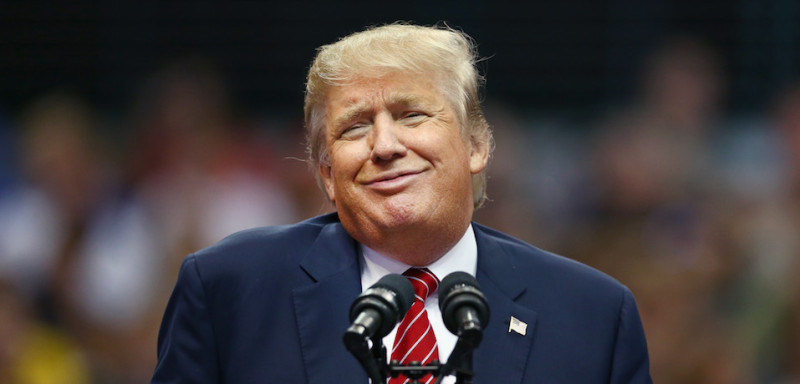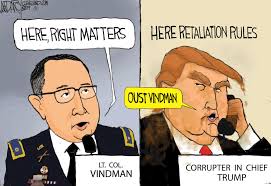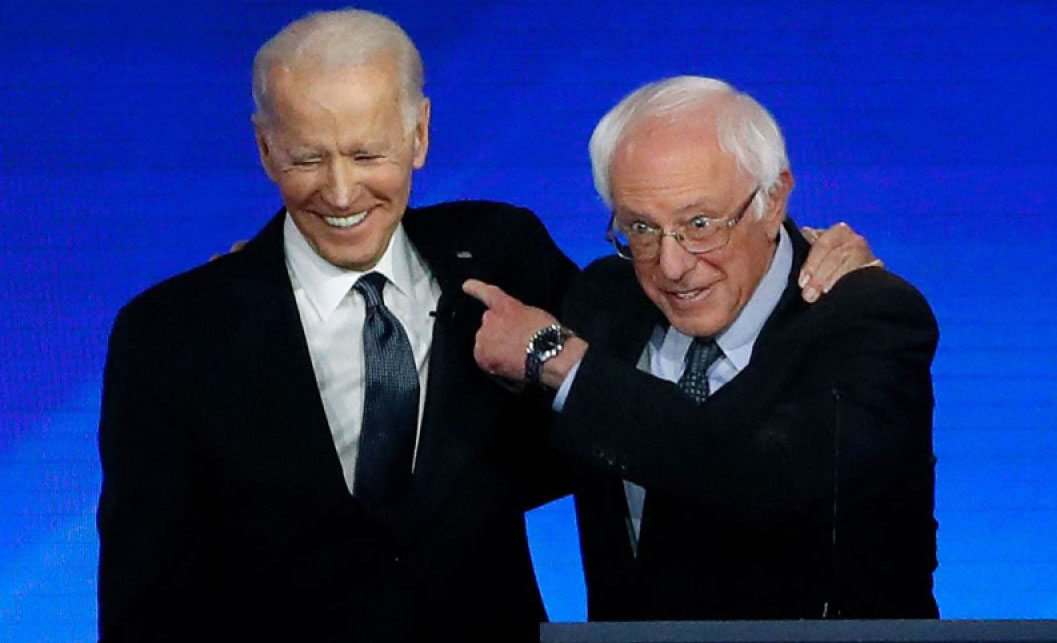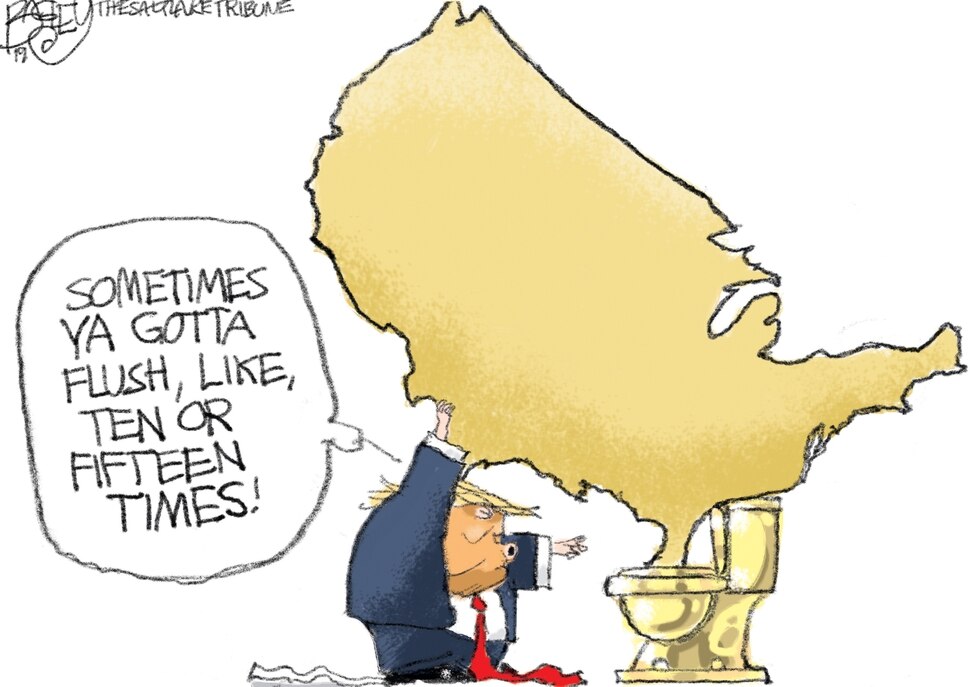Today’s development in the Roger Stone case:
A day after Attorney General William P. Barr publicly warned President Trump not to tweet about the Justice Department, Trump did just that, declaring that he has the “legal right” to ask his top law enforcement official to get involved in a criminal case.
Back story, which should be subtitled “Bill Barr Is a Lying Sack of Shit”:
Barr’s story of how he decided to intervene in Roger Stone’s sentencing makes no sense. Lawrence O’Donnell walks us through the essential screwiness of Barr’s claims.
On ABC, Barr offered his first detailed account of the mess involving Stone, who was convicted of lying to Congress and witness tampering to obstruct investigations into Russian subversion of the 2016 election for Trump.
Barr recounted that a top deputy — apparently Timothy Shea, a longtime Barr adviser just installed as U.S. attorney in Washington — had grown concerned that sentencing guidelines would dictate too draconian a punishment.
Stone’s prosecutors wanted to recommend the stiff sentence. But Barr wanted the judge to make the determination without any affirmative department recommendation.
Barr claimed he thought this was the approach all agreed would be followed, but that the prosecutors submitted the stiffer recommendation, which “surprised” him. He claimed he then started the process to undo this — before Trump tweeted his rage at 2 a.m. the next day.
Later the next morning, Barr was already preparing to implement the change when he was notified about Trump’s tweet — meaning Trump’s rage didn’t influence him. Barr claimed Trump’s tweet boxed him in — reversing the sentence would now smack of carrying out Trump’s bidding.
This account is actually very damning. The most charitable interpretation here is that Trump has openly sought to corrupt the process. By Barr’s own implicit admission, Trump’s rage could only be construed as an effort to manipulate law enforcement — after all, this is precisely what, by Barr’s account, boxed him in.
And, frankly, today hardly anyone believes that Barr decided to intervene on his own, and not on orders from Trump. The ABC interview and Trump’s subsequent tweets saying he hadn’t talked to Barr are obviously contrived.
I suspect that, even as I keyboard, legal experts are composing op eds on the limitations of the president’s powers in criminal cases, and as soon as that happens I’ll post some links. Seems to me he’s coloring outside the lines again.
And then there is today’s decision to drop the prosecution of Andrew McCabe:
Andrew G. McCabe, the former deputy F.B.I. director and a frequent target of President Trump, will not face charges in an investigation into whether he lied to investigators about a media leak, his defense team said on Friday.
The decision by prosecutors in Washington ends a case that had left Mr. McCabe in legal limbo for nearly two years. It also appears to be a sign that Attorney General William P. Barr wants to show that the Justice Department is independent from Mr. Trump: The notification came a day after Mr. Barr publicly challenged the president to stop attacking law enforcement officials on Twitter and said the criticisms were making his job more difficult.
I haven’t been following the McCabe prosecution all that closely, but I noticed this tweet today from a national security correspondent for Politico:
Judge Reggie Walton told the McCabe prosecutors: “The public is listening… I don’t think people like the fact that you got somebody at the top basically trying to dictate whether somebody should be prosecuted … I just think it’s a banana republic when we go down that road.” https://t.co/Fa0p5fM0px
— Natasha Bertrand (@NatashaBertrand) February 14, 2020
There is more to this backstory than I understand yet, but I’ll watch for better explanations.
Barr has also ordered a review of the Michael Flynn case. That bears watching, at the very least. Tierney Sneed and Matt Shuham at TPM that this is part of Barr’s “investigate the investigators” crusade.
Attorney General Bill Barr has brought in outside prosecutors to review the decisions made by the DOJ attorneys who have been handling the Michael Flynn case and other politically sensitive matters — some publicly known, some not — coming from within the U.S. Attorneys office in D.C, the New York Times and NBC News reported Friday.
See also Eugene Robinson, America, the banana republic.
